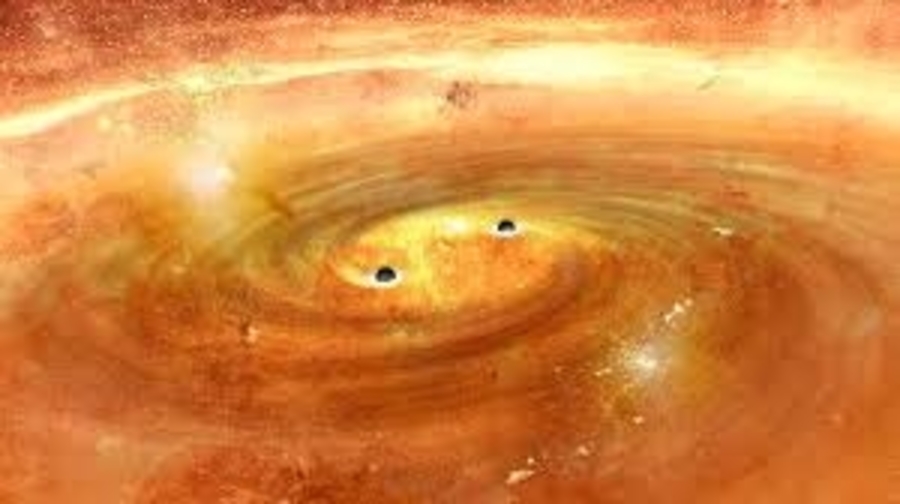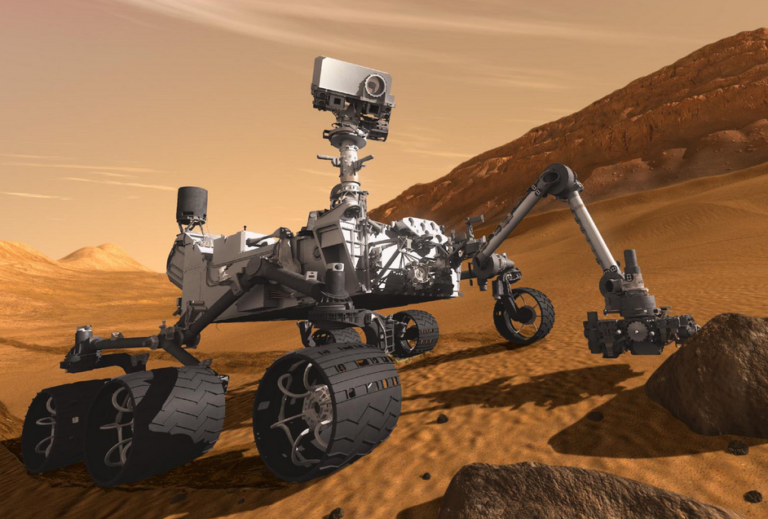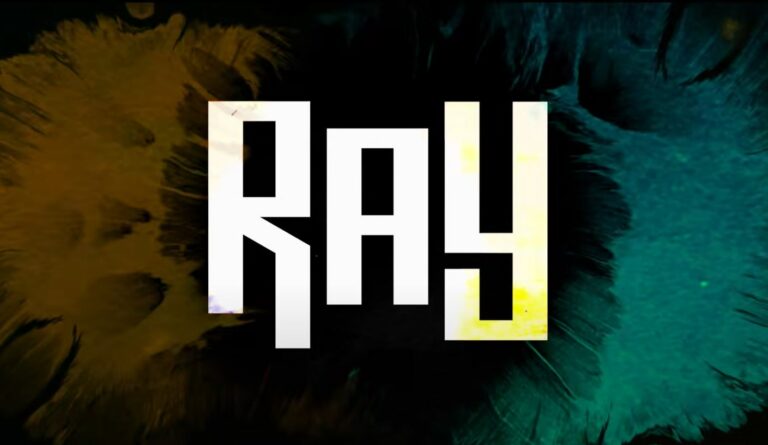Supermassive Black Holes Found Orbiting Each Other For The First Time

Short Bytes: Researchers from Stanford University have identified super-massive binary black holes at the center of Galaxy 0402+379 about 750 billion light years away. The two of the black holes are just 24 light years apart and one of them is orbiting the other. This is the first time ever where binary black holes are moving in relation to one-another.
The concept of Black Hole in itself is an enigma. Though scientists have researched on these massive objects of the cosmos; the knowledge is never sufficient. Just after a discovery is made, another question comes up leading to another discovery.The new discovery as published in The Astrophysical Journal says, there are two super-massive black holes in the Galaxy 0402+379 some 750 million light years away. They are speculated to be among the largest black holes ever studies. The combined mass is 15 billion times that of the Sun. Also, it is a few thousand times more massive than Sagittarius A*.
Researchers from Stanford University observed that one of the two black holes seems to be orbiting the other. Considering the reports, the duo is the first duo ever to be moving in such relations to each other. The research is so far the smallest ever recorded movements of objects across the sky.
Roger Romani, one of the authors of this research said that it took them 12 years to study and measure the movements of these black holes. They are exceptionally big- probably formed as a result of galaxies merging together.
The two black holes are orbiting each other at a very close distance of 24 light years.
The team of scientists also reported that one of the black holes is covering one micro-arcsecond per year that is practically an angle a billion times smaller than the smallest object visible to our naked eyes. On that basis, the moving black hole will take 30,000 years to orbit around the other.
Romani said that the study would heighten interest in this complex black hole phenomena and that he is excited to learn more.
“I would sure be happy if we could find a system that completed orbit within a few decades so you could really see the details of the black holes ‘trajectories’.”
Got something to add to the topic? Share your thoughts.
Also Read: Need A Way Out Of Black Hole? Ask Stephen Hawking






